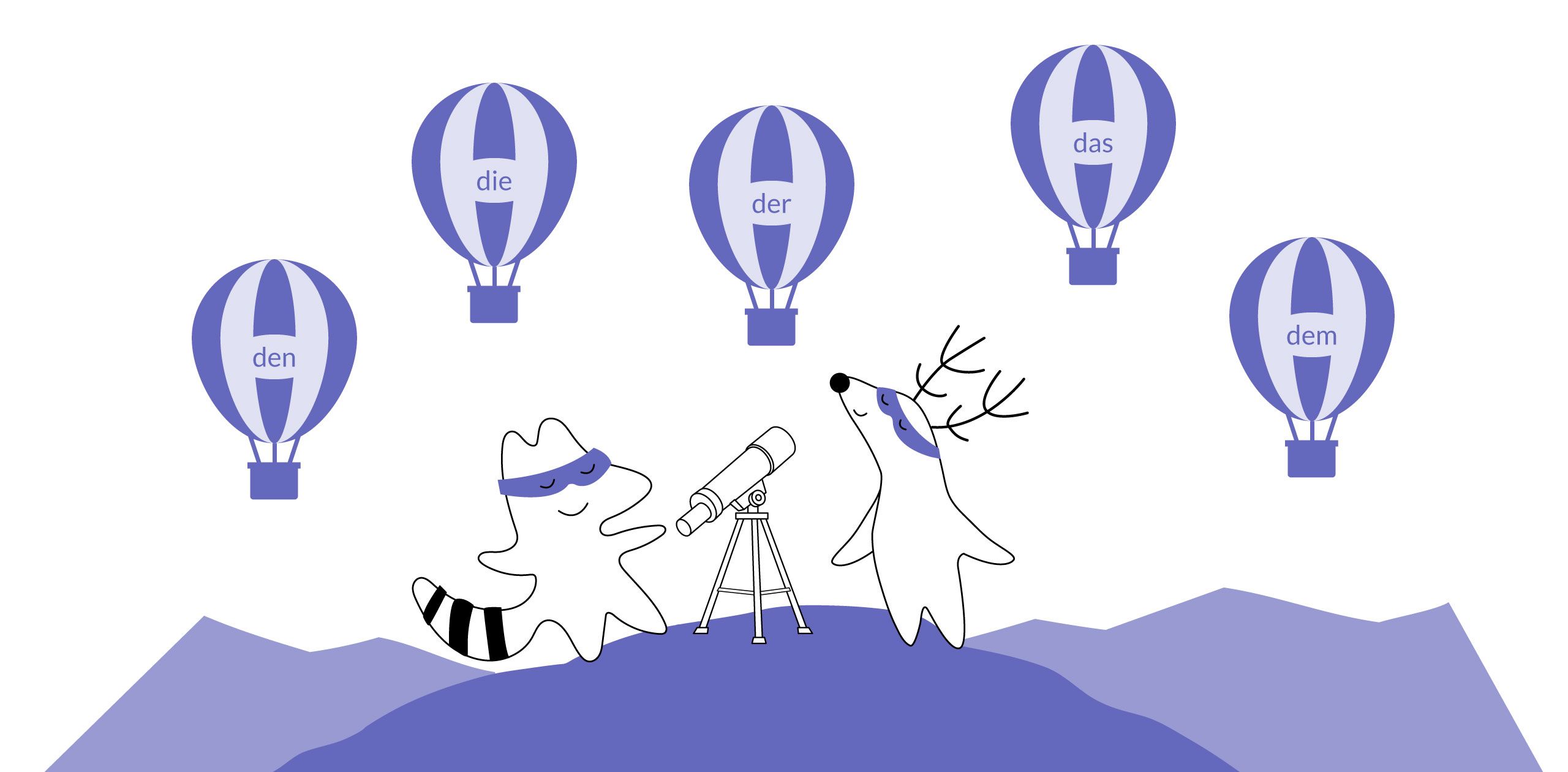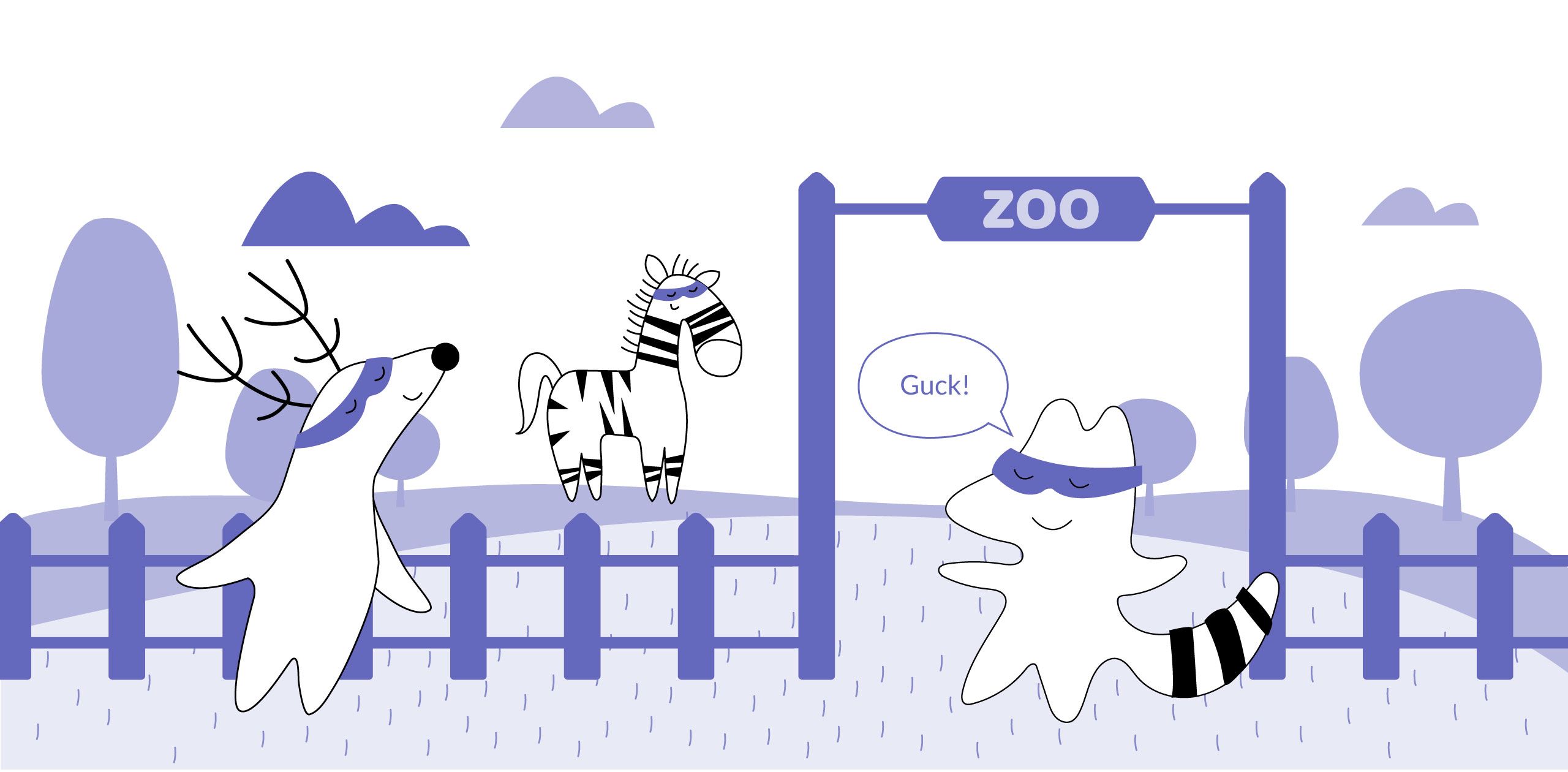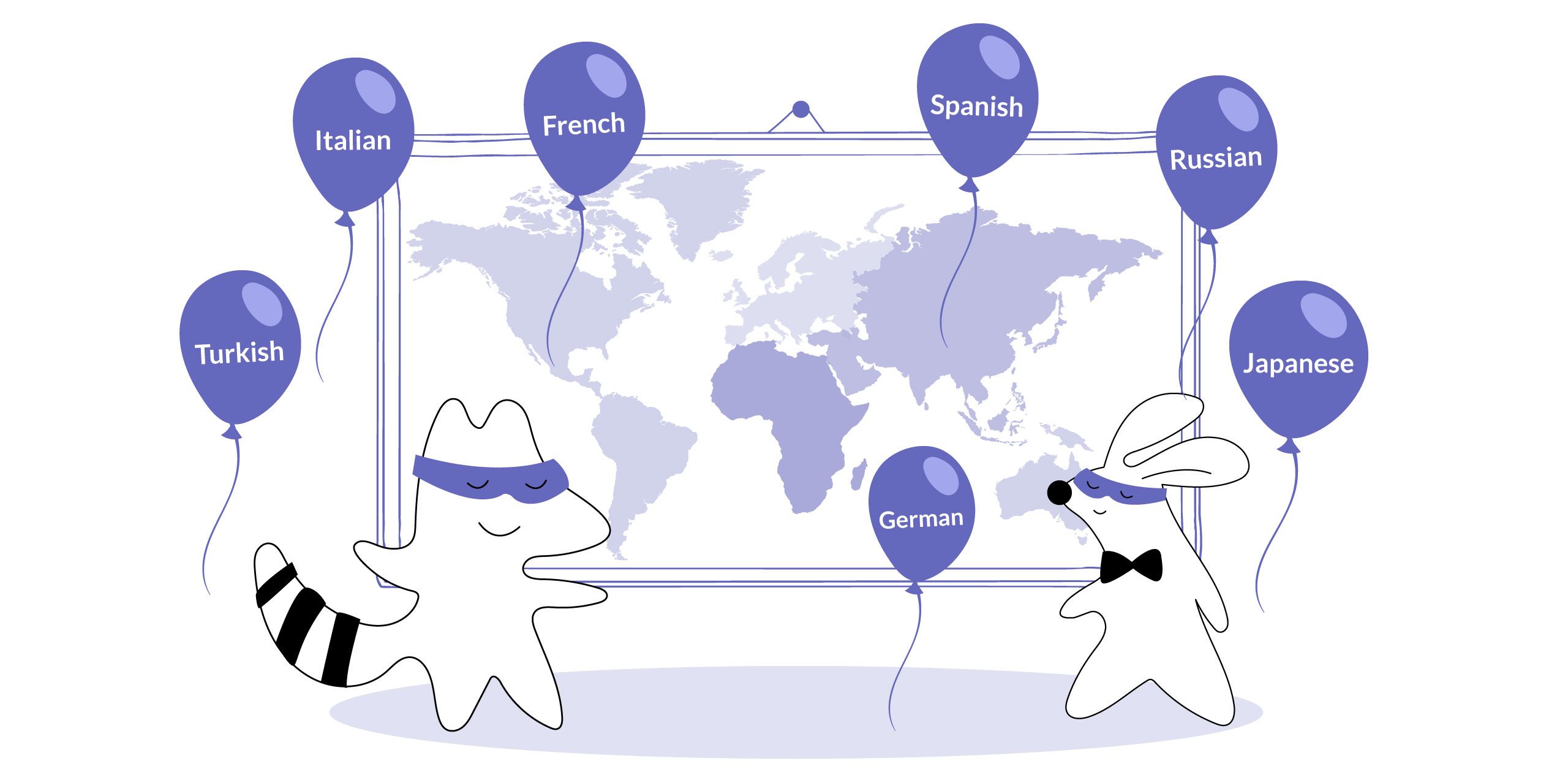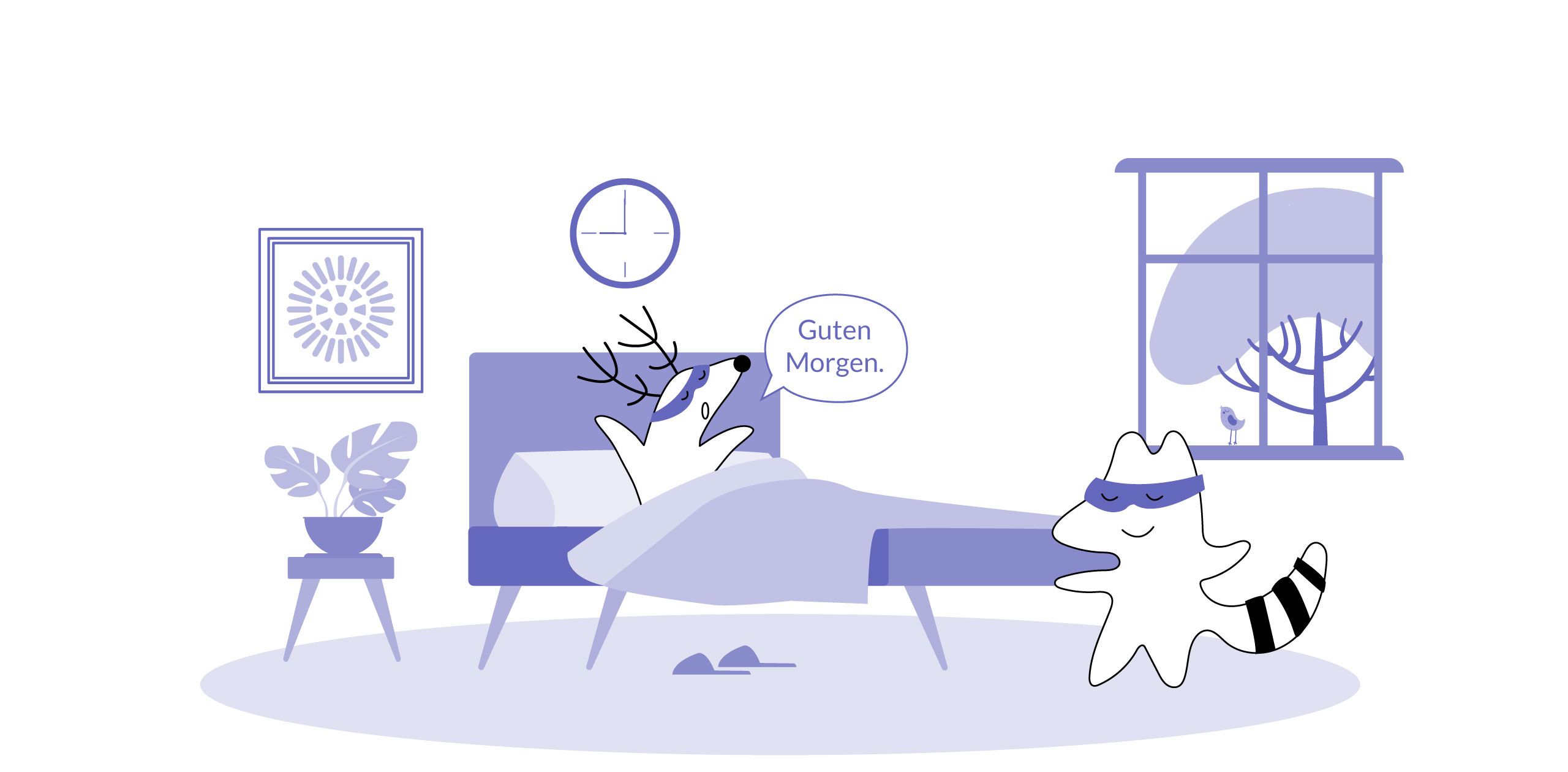
Learning the greetings of different languages is an excellent way to get in touch with people all over the world. In Germany, the proper expression and a smile on your face may help you break the ice and have fun - while you learn the German language naturally.
We already showed you several ways to say hello in German in a previous post. You may recall that we discussed formal ways to say "hello" in German in one section, including greetings for each time of day.
Germans say "Guten Morgen" (good morning) in the morning, "Guten Tag" (good day) in the middle of the day, and "Guten Abend" (good evening) in the evening. This article will focus on "good morning" and teach you everything you need to know about German “good mornings” in general.
It is normal in German culture to start the day early, and most people are okay with meeting and talking in the morning. However, there will be people in Germany who are not morning people until they have had their first cup of coffee, so better wait for a bit before talking to them.
After everyone has finally awoken, the day can begin, and you can start learning German by using some of the greetings we will go over in the following article. Some are more difficult to learn than others. What is important is that you choose what works best for you and practice it whenever you can. Let's start!
Learn German with Langster
Several Ways To Say "Good Morning" in German
There is always an official or typical way to say something in German, but there are also numerous informal ways and regional dialects.
We want to look at the standard "good morning" first and use it as an opportunity to explain some German grammar before talking about other words German speakers use, especially in northern or southern regions of Germany.
Let's Have a Look at the Classic "Guten Morgen"
German
English
Guten Morgen
Good morning
We already know that the German translation of "good morning" is "Guten Morgen." For an English-speaking person, that is easy to remember. Let’s take a closer look at the words it's made of.
You can find the word "gut" (good) in a wide range of phrases, and the fact that it always appears slightly different is due to the grammatical case it is in.
While the original word is "gut," it is used with the suffix -en in "Guten Morgen" (good morning) and with the suffix -e in "Gute Nacht" (good night). Because English doesn’t have a case system like German and other languages, all three will be translated as "good."
Essentially, the form of the adjective "gut" is determined by two factors. First, you consider the gender of the following noun - and second, the role of “gut” in the sentence. Since the German language has three different genders and four different grammar cases, the adjective can take many forms.
In "Guten Morgen," the adjective "gut" appears in a masculine form in the accusative (fourth) case.
If you want to learn German cases, you can take a look at our article about the German case system.
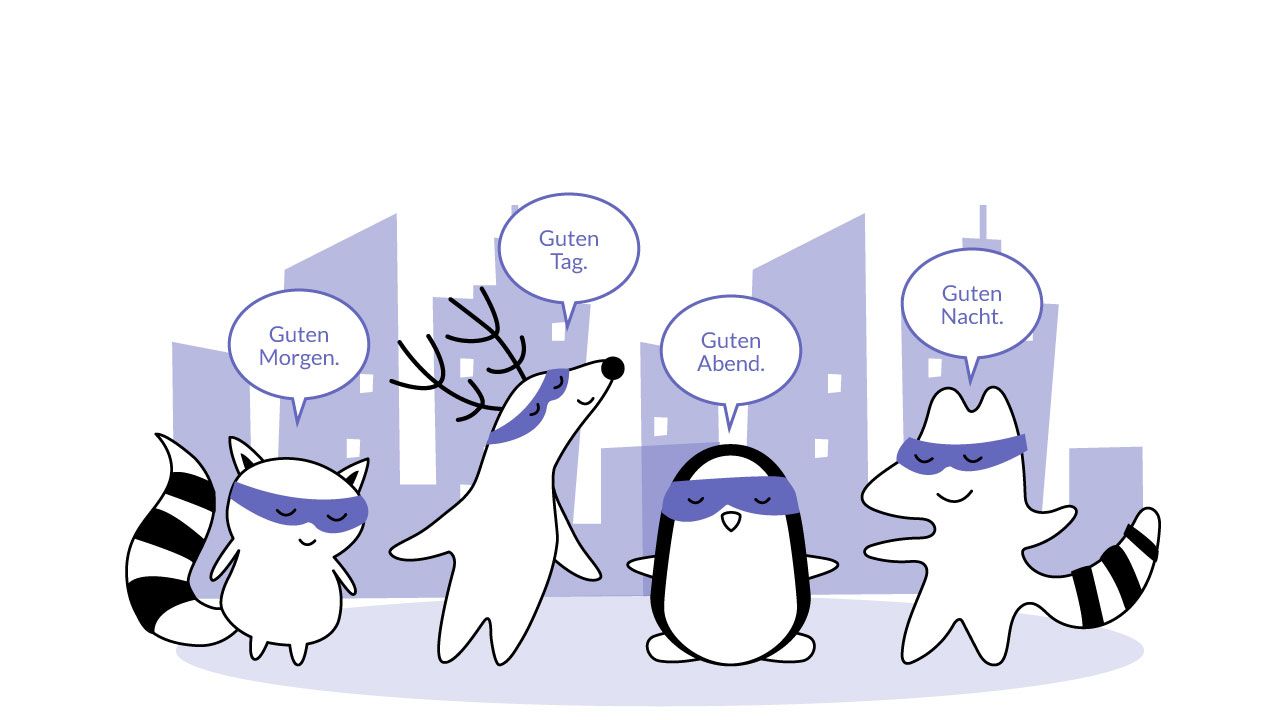
"Grüß Gott" in Southern Germany and Other German-Speaking Countries
In southern Germany and in Austria, apart from "Guten Morgen," people often say "Grüß Gott," which literally means "greet God" but is equivalent to "God bless." It is used in both informal and formal situations, as well as when saying "good morning" and "good day."
German
English
Grüß Gott
Good morning / good day
This very traditional way of saying "hello" is also inspired by Catholicism, a widely observed religion in many German-speaking regions.
In Southern Germany, people use "Servus" as a different way of saying "good morning" or "hello", while in Switzerland, people use "Grüezi"
| Bavaria | Swiss German | English |
|---|---|---|
| Servus! | Grüezi / Grüezi mitenand | Good morning / hello |
| Bavaria | Swiss German | English |
|---|---|---|
| Servus! | Grüezi / Grüezi mitenand | Good morning / hello |
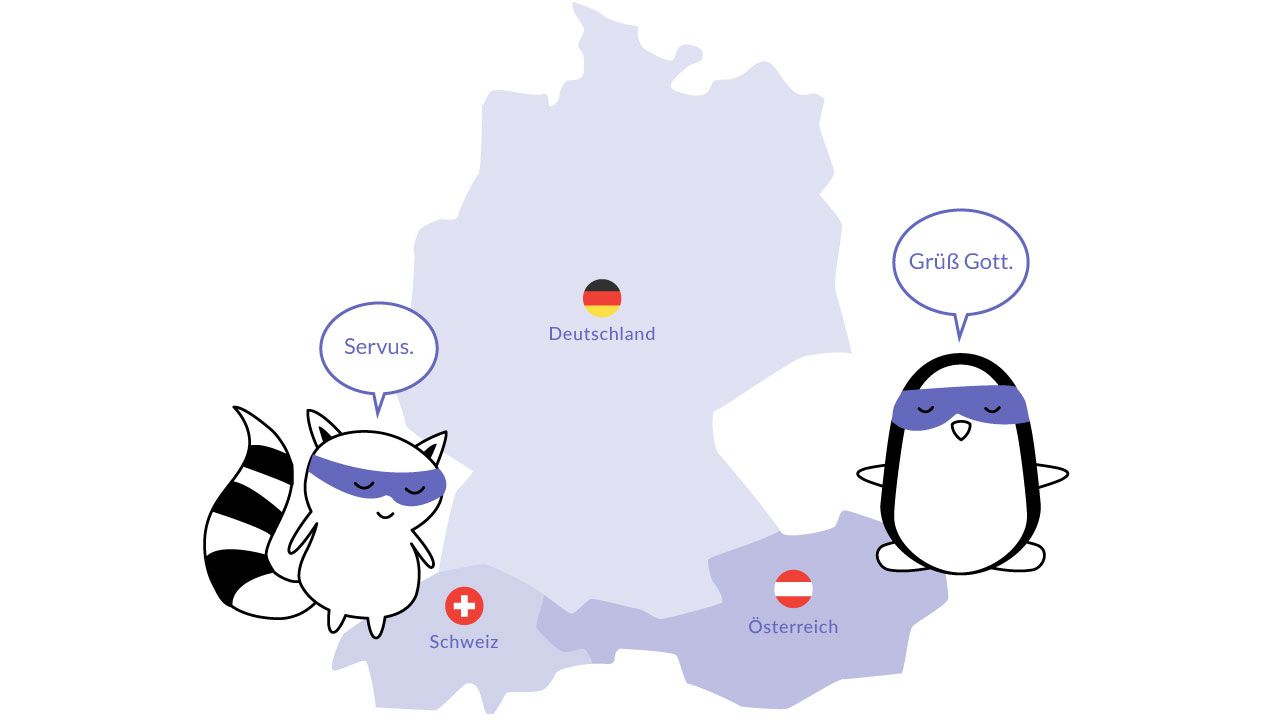
In the German language, another greeting that you can use to say "good morning" is "Grüß dich," which can be translated literally as "greet yourself." You should only use this in informal settings because the word "dich" refers to a single person with whom you have a casual relationship.
German
English
Grüß dich
Good morning / hello
It is one of the more personal ways to say "hello" in German, so it is appropriate for greeting someone you know well. It is short and straightforward, which makes it an ideal greeting for those just beginning to learn German.
How to Say "Hello" in Northern Germany
"Moin Moin" is a common phrase that you may be familiar with. It comes from northern Germany, specifically the area around Hamburg. This phrase was initially used among fishermen, and Germans would translate it as "Morgen Morgen." However, you will hear it at all hours of the day.
German
English
Moin Moin
Hello / good morning
Like the word "Servus," the phrase "Moin Moin" spread beyond its original context and is now used among friends as a fun way to say "good morning" all over Germany.
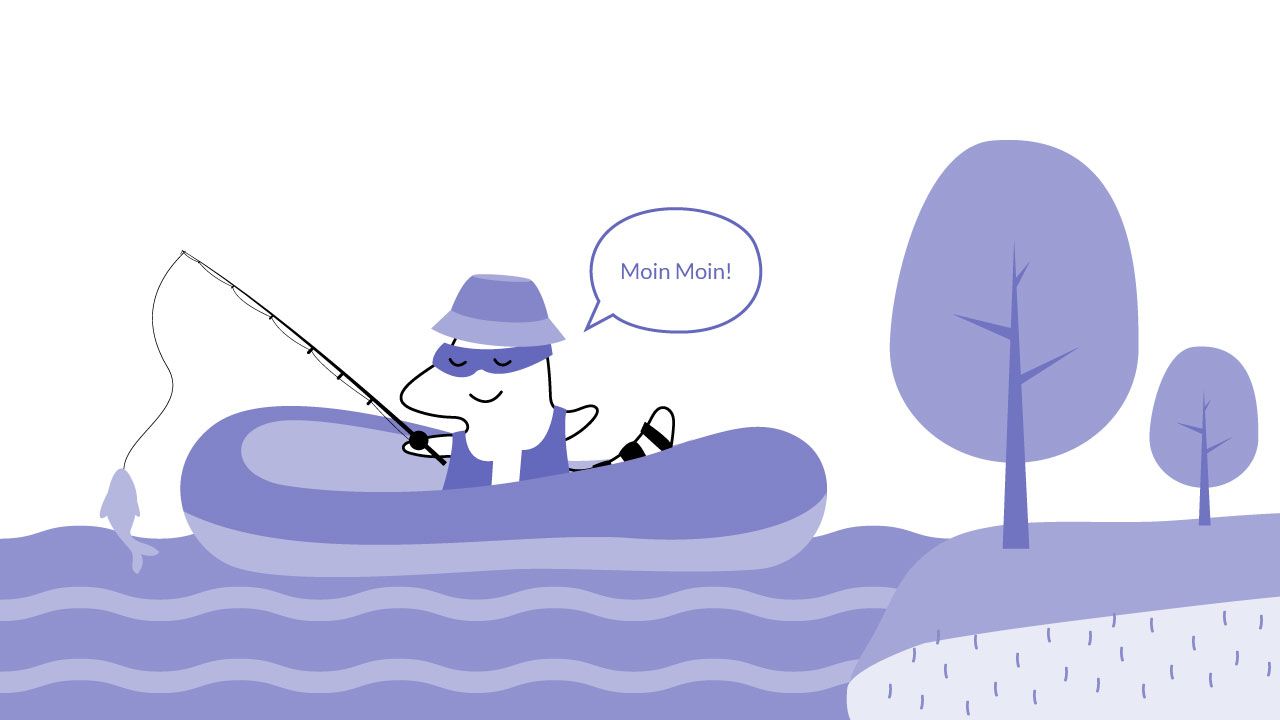
Morning Greetings in Western Germany
The West of Germany is best known for its Ruhrgebiet area, which has its own set of regional words you should know if you want to learn the German language there. Their most common greeting and way to say "Guten Morgen" or "Guten Tag" is simply “Tach." It is slang for "Tag," which means "day."
German
English
Tach / Tag
Day
You can interpret it as a simplified version of "Guten Tag." Germans use it mostly in informal contexts, for example, among friends.
There is also the slang word "Morjen," which is basically the same word as "Morgen," but they pronounce and write it differently.
Let's Imagine a Morning in Germany
As in most countries in the world, the German morning usually starts with breakfast. Imagine waking up in a family's house in Berlin in the early morning. It’s the weekend. You already smell coffee and fresh bread as it is a traditional German breakfast. Someone probably calls you, "Frühstück ist fertig!" (breakfast is ready).
After greeting everyone with "Morgen" or one of the other greetings listed above, you can inquire how they are by asking "Wie geht's?" (how’s it going) or "Wie geht es dir?" (how are you). However, note that while many English speakers don't expect actual answers to these questions, Germans will give you a more detailed reply.
German breakfast offers an excellent opportunity to improve your language skills because it provides ample opportunity to learn new vocabulary.
However, it’s also a very pleasant part of the day - Germans typically enjoy a large breakfast complete with fresh bread. In Berlin, you can also find Berliner Pfannkuchen, which are fried dough balls stuffed with marmalade.

Let's Repeat What We Have Learned in This Article
German “good mornings” are pretty simple. With the typical formal greeting "Guten Morgen," you are prepared for every morning situation in Germany. Just try to read the room before talking to people - some people prefer not communicating with anyone before they have woken up completely.
If you visit Hamburg or northern Germany, try to start your day with a "Moin." In the South and Austria, greet people with "Grüß Gott."
As with any language, the only way to improve is to practice. So to learn German, choose one greeting shown in this post and begin using it until you have it memorized. And if you're looking for more German phrases to learn, take a look at other basic German phrases here or try out our app!
Learn German with Langster






